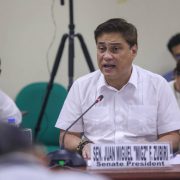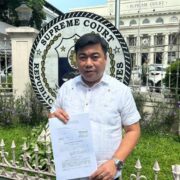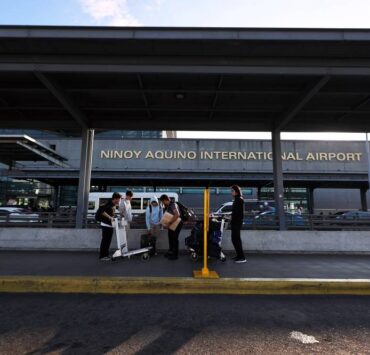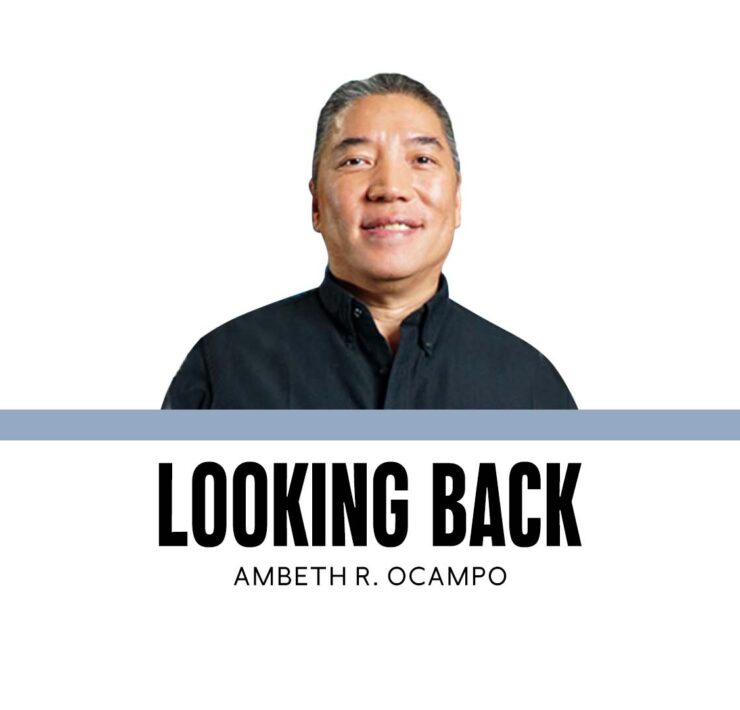Nadia resigns from Robin’s office; Senate faces mandatory drug testing
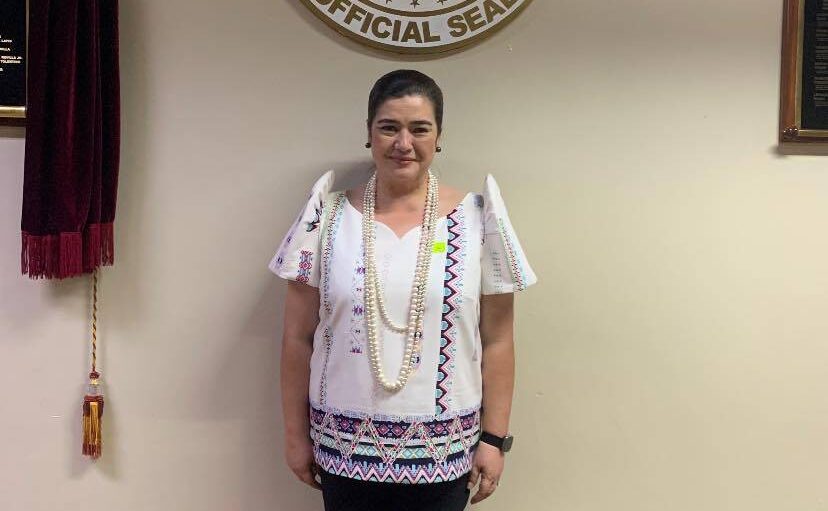
Former actress Nadia Montenegro has resigned from her position as political affairs officer in the office of Sen. Robin Padilla, the senator’s chief of staff announced on Monday.
In her five-page resignation letter dated Aug. 15 and addressed to lawyer Rudolf Philip Jurado, the senator’s chief of staff, Montenegro said she resigned “for the sake of my mental health and the welfare of my children.”
She strongly denied that she was the staff of the senator who allegedly smoked marijuana inside the Senate building as mentioned in news reports.
‘No incident’
Montenegro’s name had appeared in an incident report dated Aug. 13 filed by a Senate security officer who was alerted to two alleged instances of “an unusual scent/odor… coming from the ladies’ comfort room near the senators’ extension offices.”
But, according to Montenegro, “There was NO incident wherein a personnel of the Osaa (Office of the Sergeant at Arms) went to our office and found me in the restroom and asked me about the alleged smell of marijuana in the restroom of our office.”
However, Montenegro admitted that before she went home on Aug. 12, she used a PWD restroom, but not the ladies’ restroom where the odor that allegedly “resembled that of marijuana” came from and was then reported by a staff member of Sen. Panfilo Lacson.
Although the incident report was addressed to the Osaa, Montenegro lamented how it was “maliciously shared to the media/social media, thereby crucifying me in the eyes of the public sans due process of law.”
Her decision to resign, she said, “should not be misconstrued as an admission of guilt—it is not.”
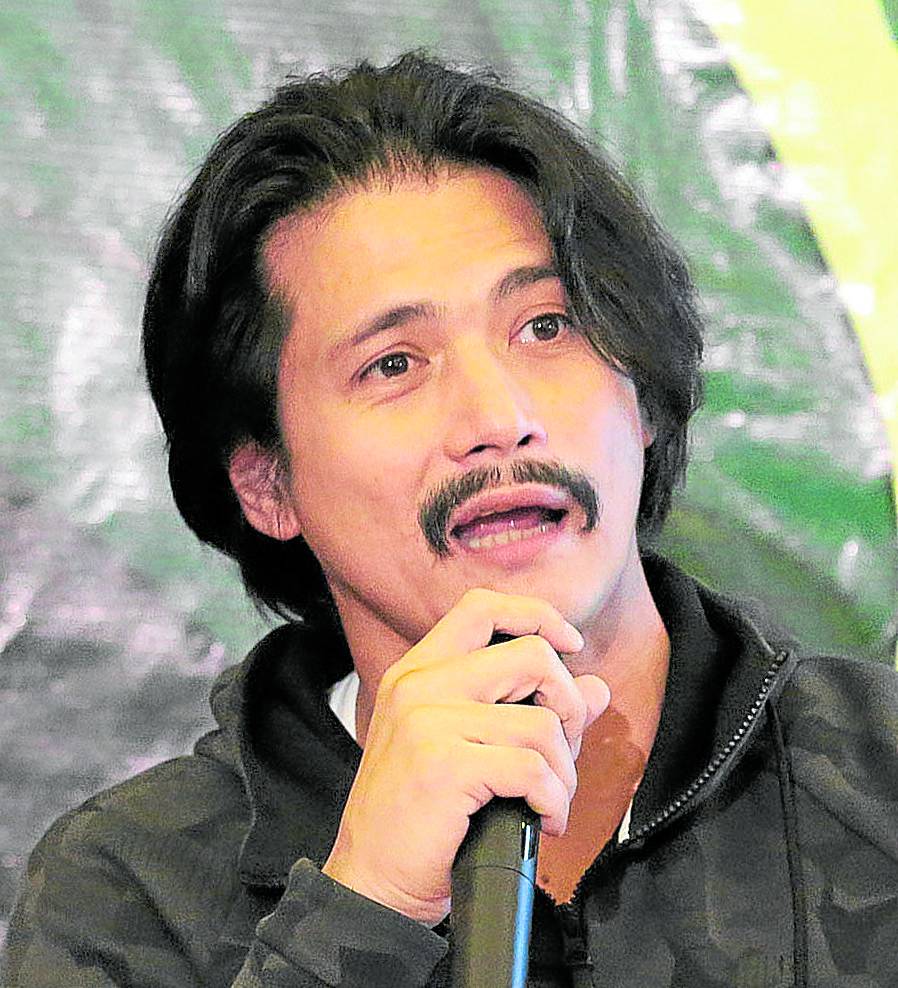
“Rather, it is a demonstration of my deep respect for the Senate and Senator Padilla’s office, so that this issue does not cause further distraction or harm.”
Montenegro had been on leave of absence since Aug. 13 amid the Senate’s investigation into the alleged use of marijuana within its premises in Pasay City.
Amid the controversy, Senate President Francis Escudero on Monday said the chamber had already been preparing for mandatory random drug testing (MRDT) as early as March 2025, but is finalizing a new policy order covering all officials and employees of the upper chamber.
Escudero made the remarks in response to the letter sent to him by Senate Minority Leader Vicente Sotto III calling for the conduct of MRDT in the Senate in light of the alleged marijuana use last week.
Escudero said that on March 20, the Senate had entered into a memorandum of agreement with the East Avenue Medical Center National Reference Laboratory for Environmental Occupational Health, Toxicology, and Micronutrient Assay to facilitate the testing for all Senate officials and employees.
“However, given that a lot of employees from the Senate… will not be available because of the 2025 national and local elections, it was suggested to just resume the MRDT in the 20th Congress,” Escudero said.
The chamber, he said, is now working on its new MRDT policy order in consultation with the Medical and Dental Bureau, the Senate Legal Counsel, the Human Resources Management Service, and the Senate committee on mental wellness.
Voluntary test
Sen. Juan Miguel Zubiri went ahead with his own drug testing on Monday, along with 35 staff members of his office.
“Let’s lead by example. Many people are saying that someone in the Senate is using drugs, so I said my staff and I should go first and volunteer ourselves for a test against illegal drugs, hoping that doing so would also encourage our colleagues,” said Zubiri, who was the principal author of the dangerous drugs law when he was still in the House.
According to Zubiri, a former Senate President, his colleagues in the minority bloc, particularly Sotto and Sen. Loren Legarda, will also undergo the test along with their staff.
Padilla bill
Meanwhile, Padilla, Montenegro’s former boss, filed Senate Bill No. 1200 on Monday, seeking to institutionalize the annual mandatory drug testing of all public officials, including the President of the Philippines, as well as voluntary random drug tests for candidates of electoral posts within 90 days prior to Election Day.
Under Padilla’s proposed Drug-Free Government Act, the drug testing will be done through two testing methods: a hair follicle drug test as the primary method, and a urine test as a confirmatory step.
The measure likewise requires applicants for driver’s license to be subjected to mandatory drug tests.








